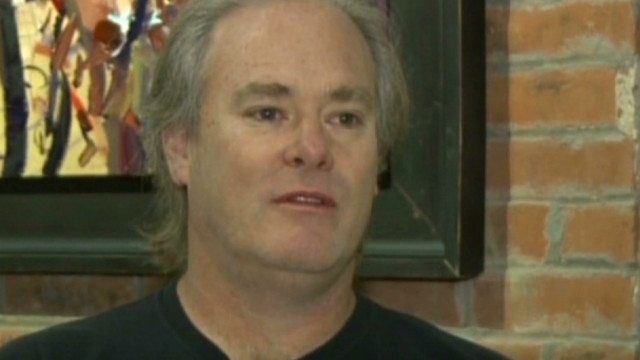
- “I donated genetic material and that was it for me,” Marotta says
- Kansas says he should have gone through a doctor
- The case started with an ad on Craig’s List
(CNN) — If you’re planning to donate sperm in Kansas, you may want to do it through a doctor.
That’s one message from the case of William Marotta of Topeka. In 2009, he noticed a Craig’s List advertisement from a lesbian couple, also in Topeka, seeking donated sperm.
“Intrigued” by the ad, he agreed to donate and says he delivered three cupfuls of his sperm — gratis — to the women, one of whom gave birth to a daughter.
“I donated genetic material, and that was it for me,” he told CNN affiliate WIBW.
Or so he thought. That changed when the parents separated and one of the women stopped working because of illness and applied to the state for help, he said. The state contacted Marotta for child support.
Kansas officials were not persuaded by what Marotta says were agreements he signed before making his donations that he would assume no financial responsibility for the child, who is now 3 years old.
The Kansas Department for Children and Families said any agreement would not apply because a physician did not perform the insemination, which Marotta said was news to him.
“I didn’t know that there was no doctor involved,” Marotta said Friday.
His lawyer, Ben Swinnen, accused the state, where same-sex marriage is not legal, of being politically motivated in its pursuit of $6,000 from his client.
“The cost to the state to bring this case far outweighs any benefit the state would get,” he said.
Marotta said he met the child once — a few months ago — when he and his wife by chance crossed paths with one of the girl’s parents at an area carnival.
He said he had no intention of assuming a paternal role if he loses the case. “I’m not her parent,” he said.
But under Kansas law, he is her father. Had a physician carried out the insemination, that would not be the case, because Marotta would be able to document that he was a sperm donor and not the lover of the girl’s mother, said CNN Senior Medical Correspondent Elizabeth Cohen.
“For all they know, they were lovers,” she said. “They need that documentation. He’s the dad; he ought to be paying up.”
Though a physician would have tested the sperm for sexually transmitted diseases and certain genetic disorders, there are disincentives associated with going through a physician.
A single attempt at artificial insemination costs about $3,000, and sometimes several tries are needed. “It’s a lot cheaper to get someone to come on over with their donation, and then do it yourself at home,” Cohen said.
Meanwhile, Marotta owes legal fees and has taken his story to the news media. “If enough noise gets made about it, at this point, maybe things will change for the better,” he said.
Asked whether, knowing what he now knows, he would answer the advertisement again, Marotta said, “Probably not.”


You must log in to post a comment.